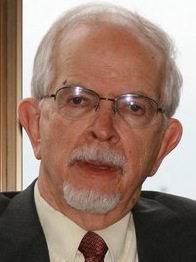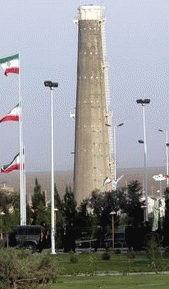This week's Geneva nuclear table talks pit Iran against the Big Five Security Council members, plus Germany.
Iran sits alone at the table, seeking release from its "sanctions jail" incarceration from its jailers, the Big Five plus one nations.
Israel will not be in the room, even though the region's self-proclaimed "only democracy," is Iran's chief accuser in these talks.
Israel's leaders will be back home, hiding behind what Israel calls its "ambiguity wall," a metaphorical entity which hides at least 80 Israeli nuclear warheads, plus the material to build hundreds more.
The ambiguity wall has protected Israel's growing nuclear arsenal from the world's eyes since the 1950s. In 1986, Mordechai Vanunu, an Israeli nuclear technician working in Dimona, breached the wall when he leaked the country's nuclear secrets to a British newspaper.
Vanunu said Israel had at least 100 nuclear weapons. He was kidnapped by Israeli Mossad agents in Rome and quickly convicted of espionage and treason. He served a jail term of 18 years, 11 of which were in solitary confinement.
After his release in 2004, Vanunu was forbidden to leave the state of Israel or speak with journalists. Born in Marrakech, Morocco, to a Sephardi rabbi, Vanunu learned the hard way that it is not nice to talk about what goes on behind Israel's "ambiguity wall."
The wall continues to be accepted as "ambigious" by world media and governments, thanks to the powerful influence of the United States, Israel's big brother protector and financial sugar daddy. Thanks to big brother, the talks in Geneva are proceeding as though Iran's major accuser is not needed in the nuclear table talks.
Iran, sitting as the "accused" in Geneva, does not put its nuclear facilities behind an "ambiguity" wall. The BBC offers a close look at Iran's various nuclear production sites. This report relies on Iran's open stance regarding its program, in contrast to Israel's lack of transparency.
I ran resumed uranium enrichment work at Natanz in July 2004, after a halt during negotiations with leading European powers over its program.
It announced in September 2007 that it had installed 3,000 centrifuges, the machines that do the enrichment. In 2010, Iran told the IAEA Natanz would be the venue for new enrichment facilities -- construction of which would start around March 2011.
This is the facility at the heart of Iran's dispute with the United Nations Security Council.
The Council is concerned because the technology used for producing fuel for nuclear power can be used to enrich the uranium to a much higher level to produce a nuclear explosion.
Of course fuel produced for nuclear power can be used to produce a nuclear explosion. There is no secret about this reality. Iran wants what every developed nation wants, a developed nuclear power system, and the option to build stronger, more lethal, stuff.
Were it not for this desire to compete with military power among nations like the Big Five, plus Germany, all of whom are well armed with nuclear weapons, the world would have moved decades ago to eliminate all nuclear weapons.
(Note: You can view every article as one long page if you sign up as an Advocate Member, or higher).







